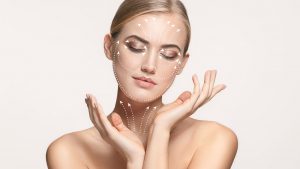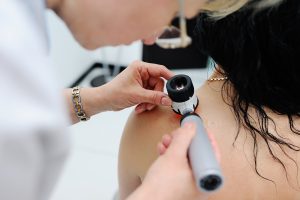Skin cancer is the most common cancer in Australia. It is estimated that one in five Australians will develop skin cancer at some point in their lives. The good news is that you can halt skin cancer or catch it early if you know what to look for. This article will discuss why a full body skin checks is important.
The Importance of a Full Body Skin Check
A full body skin check is important to find early detection of skin cancer. A full body skin check can help detect any suspicious spots or changes in moles or other areas of your skin before they become more serious. Skin cancer checks are important because over 95% types of skin cancers are treatable if they’re discovered in their early stage. A full body skin check can also treat 90% of melanoma, the most severe skin cancer.
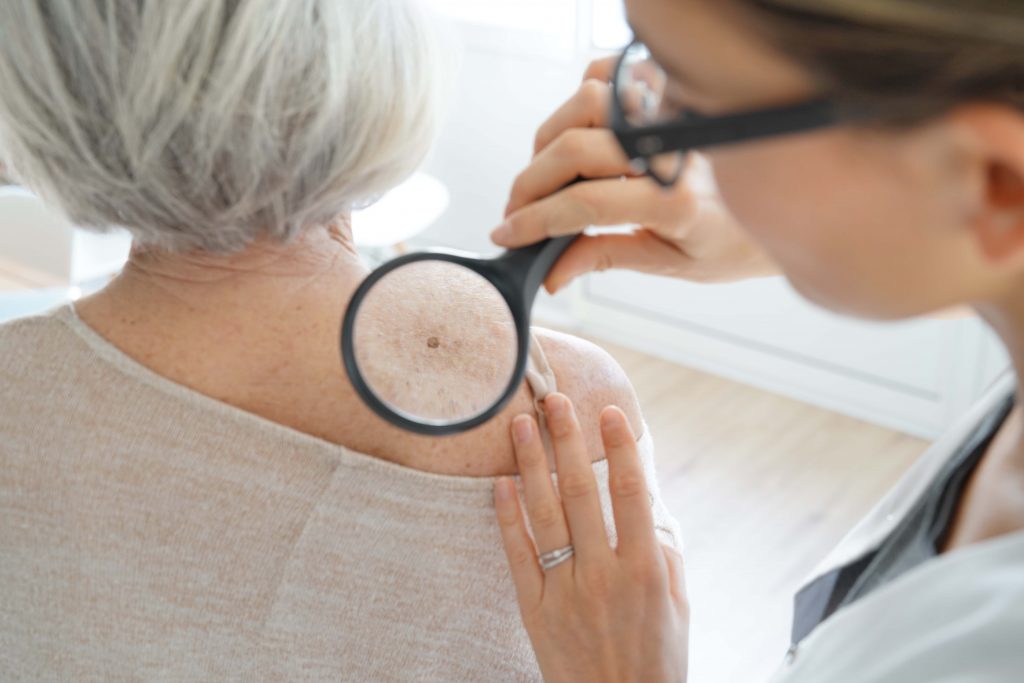
It is very important to get full body skin checks to ensure you are safe from cancer!
During the Screening
During the exam, a dermatologist will examine the entire surface of your skin, paying close attention to any lesions. The doctor may also discuss skin type, family history, and behaviour patterns that could increase your chances of skin cancer.
When required, your practitioner will ask you to dress down to your underwear and to take off your shoes and socks. Therefore, make sure to wear boxer shorts, short gym pants, or a crop top. From the skin examination, your practitioner will determine whether further action needs to be taken to diagnose the lesion. If action is necessary, you will have a suitable time frame to seek a diagnosis and treatment options for the spot.
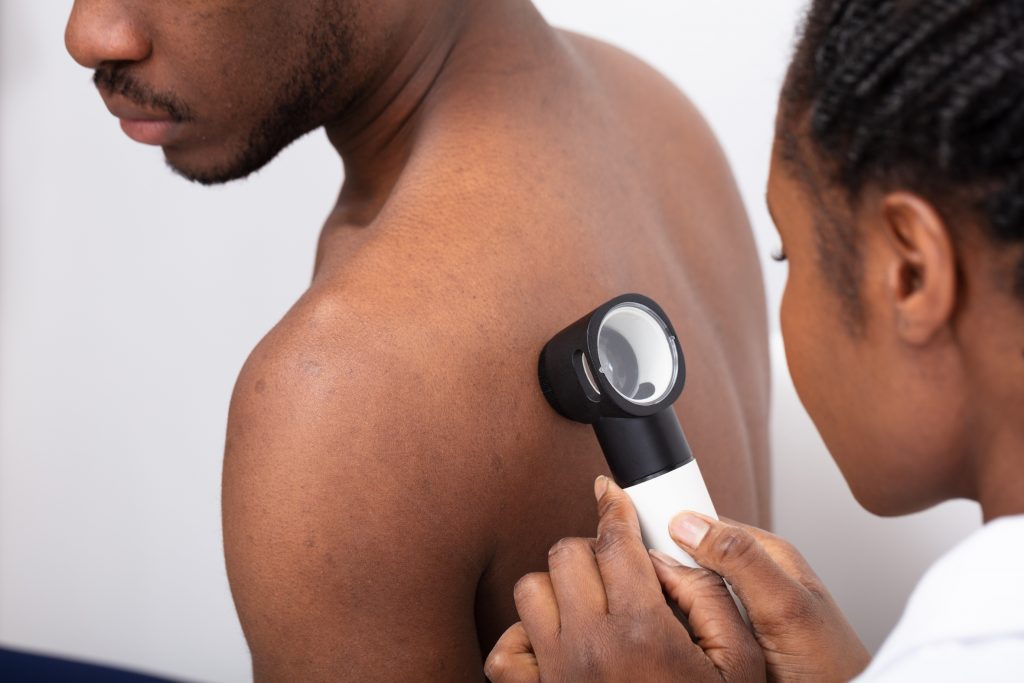
Any lesions will go under inspection during the screening!
After Screening
After your skin cancer screening, your doctor will let you know if further follow-up is necessary and when you should book your next skin check. The time frame varies depending on your skin type and individual factors. If required, they will also provide tips for protecting your skin.
How to Prepare For The Exam
Before your procedure, removing any makeup or lotion is important, as these can make it harder for the doctor to get a clear view of your skin. Wearing comfortable clothing that allows easy access for examination is recommended as well. This might include shorts and a tank top for female patients or swim trunks and a t-shirt for male patients.
One of the most important steps in preparing for a full body skin check is to be aware of any suspicious skin changes or spots on your skin. A self-examination before the doctor’s visit can help you identify problem areas that may need further examination. To perform your full body skin checks, follow these simple steps:
- Be in good lighting, undress completely
- Check your entire body, including small areas like the soles of your feet and nail beds
- Use a mirror to check areas like your back
- Give your scalp an examination too!
Always ask your dermatologist if you’re unsure how to check your skin correctly. You should check your skin at least every three months or every month for high-risk melanoma cases. However, for low-risk individuals, it may only be necessary to perform a skin check annually, but it’s generally accepted that frequent skin checks will be in favour.
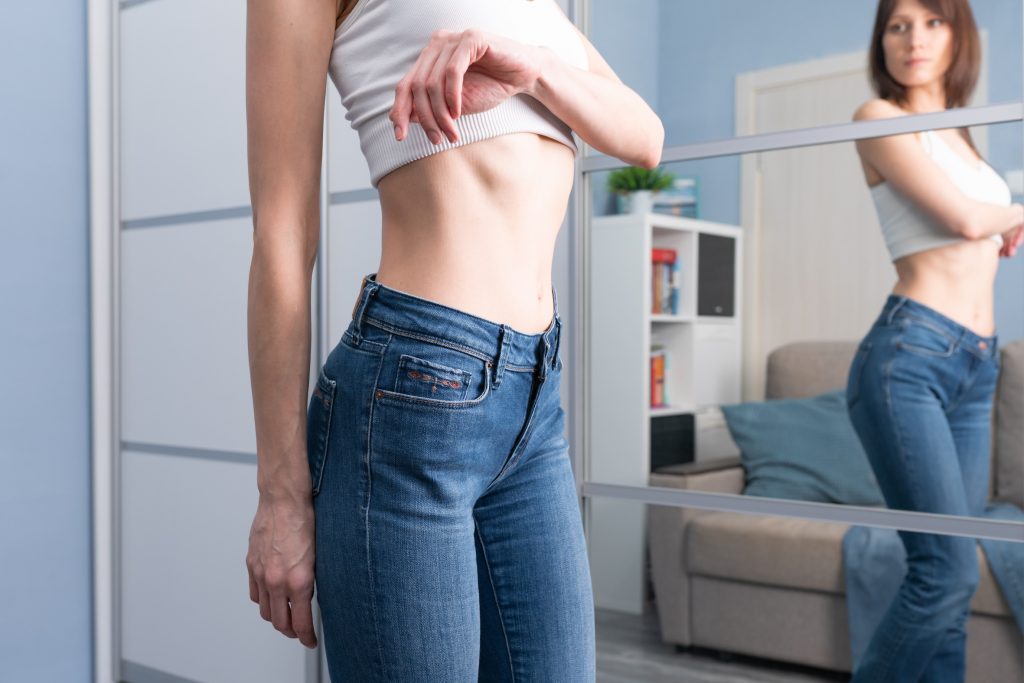
Make sure to do a self full body skin check every month!
Common Signs to Look Out For
While most people are aware of the danger of skin cancer, many don’t know what signs to look out for that could indicate a potential problem. This is why familiarising yourself with the common signs and symptoms is important.
One of the most common signs of skin cancer is an area or spot on your skin that looks different from other spots on your body. These areas may be slightly raised, appear discoloured or have an irregular shape compared to surrounding spots.
Other warning signs to look for in a full body skin checks include changes in existing moles, such as:
- Colour.
- Size or texture
- Sores that won’t heal
- New growths or scaly patches anywhere on your body
- Redness around existing moles or freckles
Additionally, suppose you notice any itching, tenderness or bleeding from a mole or spot on your skin. In that case, it’s recommended that you get checked by a doctor immediately, as these could be indicators of something more serious.
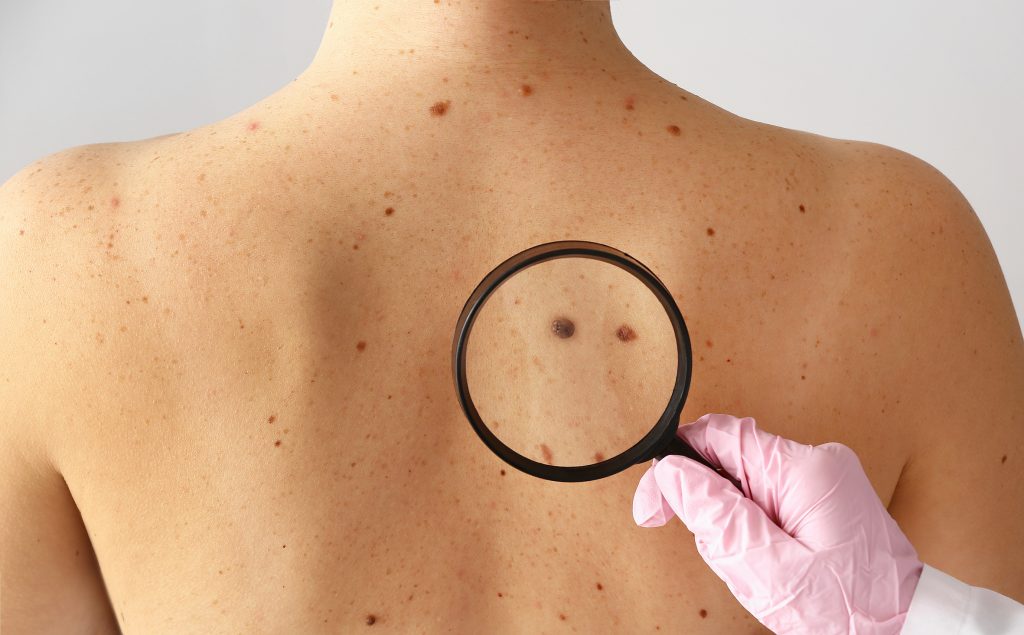
Once you spot a mole or an odd mark you have never seen on your skin, seek professional help.
Tips on Reducing your Risk of Skin Cancer
Protecting yourself from UV rays from the sun is one of the most important steps to reduce your risk of developing skin cancer. This means avoiding prolonged exposure and wearing protective clothing. These can include wide-brimmed hats, long-sleeved shirts and pants or full-length skirts, and sunglasses with UVA and UVB protection.
Additionally, sunscreen with an SPF of at least 30 is a must. It’s best to apply generous amounts before going into the sun and reapply every two hours or more often if swimming or sweating heavily. Moreover, avoiding peak sun hours between 10 am and 4 pm is also recommended, especially in summer when UV rays are strongest. If you have to be outside during this time, try to stay in shaded areas as much as possible.
Furthermore, limiting time spent in tanning beds, as these are common sources of ultraviolet radiation that can significantly increase your skin cancer risk.
Finally, it’s important to conduct full body skin checks regularly for any suspicious changes or spots that don’t look normal. A self-examination is best done in front of a mirror every month so you can see all parts of your body. If you notice anything unusual on your skin, it’s best to get checked by a doctor immediately for further evaluation. Taking these simple preventive measures can go a long way towards reducing your risk of developing skin cancer.
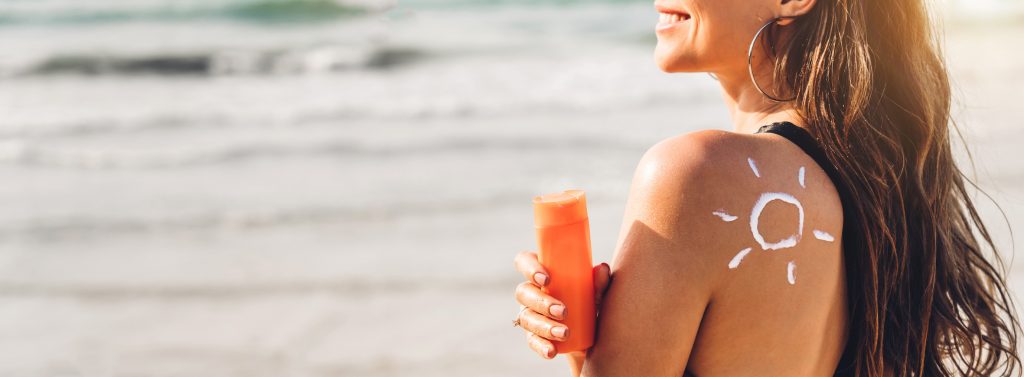
Sunscreen is the ultimate prevention for skin cancer!
Protect Yourself from Skin Cancer Today!
To sum up, it is important to be aware of the signs and symptoms of skin cancer to catch any potential issues early on. If you notice anything unusual or concerning on your skin, don’t hesitate to seek medical help immediately. For more information about a full body skin check, contact us!
